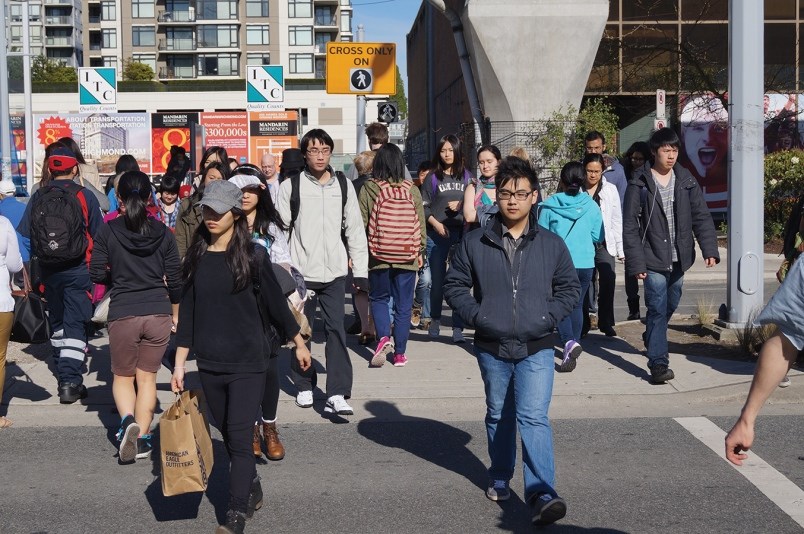British Columbia won’t be moving towards developing herd immunity to COVID-19, according to Â鶹´«Ă˝Ół»Coastal Health’s chief medical officer.
With herd immunity, a high enough percentage of the population is immune to an illness – such as COVID-19 – meaning its spread is stopped within the community, Dr. Patricia Daly said during Friday’s virtual town hall on B.C.’s coronavirus epidemic.
But while enough people may be immune, a percentage of the population will still contract the illness.
“This question has come up and people have said, well, maybe we should just open everything up and let adults get infected and create that herd immunity. The problem with that strategy, of course, is a percentage of those people will get very severe disease, and end up in hospitals, ICUs and even dying…So that is not an appropriate strategy,” said Daly.
“We’re not going to encourage people (to develop immunity) by getting sick with COVID-19.”
The question about herd immunity was raised during Friday evening’s virtual town hall, giving British Columbians the chance to learn more about the province’s COVID-19 epidemic and pose questions to VCH’s CEO Mary Ackenhusen and Daly.
The event, co-hosted by MLAs John Yap (Richmond-Steveston) and Bowinn Ma (North Vancouver-Lonsdale), was the first in a series scheduled to take place over the coming days, with one in each of B.C.’s five health regions.
Daly said that public health planning, as it looks to begin to lift certain restrictions as the curve flattens, doesn’t depend on herd immunity.
“We think we can safely lift some of the measures in place and continue to monitor it without that herd immunity being in place,” she said.
However, she said that ultimately the hope is that a vaccine will be developed – which could create that type of immunity, similar to what is seen with the measles vaccine, for example.
Elective surgeries could resume in coming weeks
While B.C. decanted many of its hospital beds and cancelled all elective surgeries to free up space and care in case of a surge of COVID-19 patients, new projections presented by provincial health officer Dr. Bonnie Henry Friday show that hospitalizations from the virus are falling.
Henry said the province is now starting to think of how to lift some of its restrictions – possibly some time next month – as long as those hospitalizations continue to decline. Any restrictions that are eased, however, will be gradual, and likely partial. The province will also be monitoring things on a two-week basis to see if there are new outbreaks.
Some activities that could return in the coming weeks include elective surgeries, but Ackenhusen said during Friday’s town hall that that would be done in a measured way.
“We’re looking at reopening, on a measured basis, our surgical program and bringing that back, because we know now that we don’t need those extra beds, we don’t need those extra nurses that would have been caring for COVID-19 patients,” she said.
“We’re in a good place, and now we need to think carefully about how we bring those services back up which we are doing as we speak.”
But Henry is also asking for British Columbians’ patience as some restrictions will be in place for some time, likely until a vaccine has been developed. Health officials are also concerned about the virus returning in the fall, similar to regular influenza seasons.
Henry has also said she's concerned about there being a spike in cases or community outbreaks.
The province’s success in avoiding a widespread outbreak so far is due to its public health measures, said Henry, rather than herd immunity – and its continued success will depend on those same measures.
“It is essential for everyone in B.C. to maintain what we have been doing,” said Henry.
Read more from the



